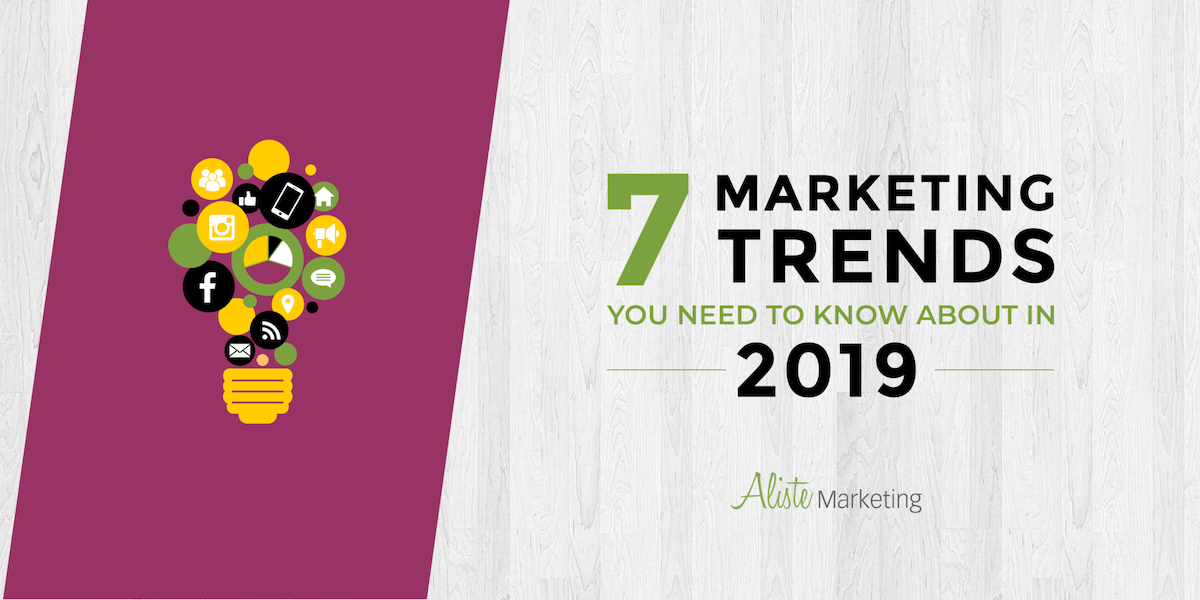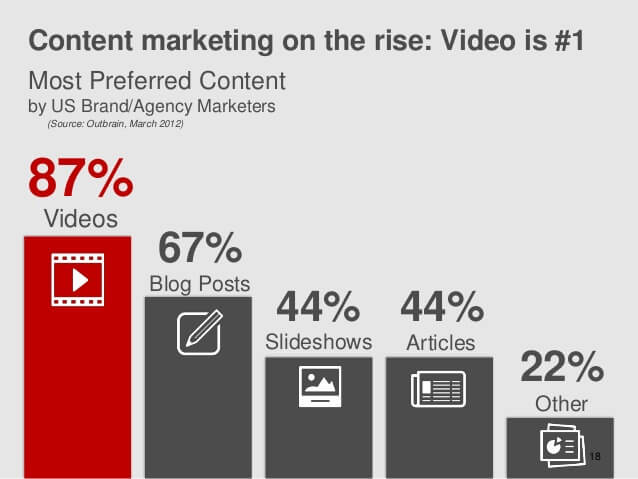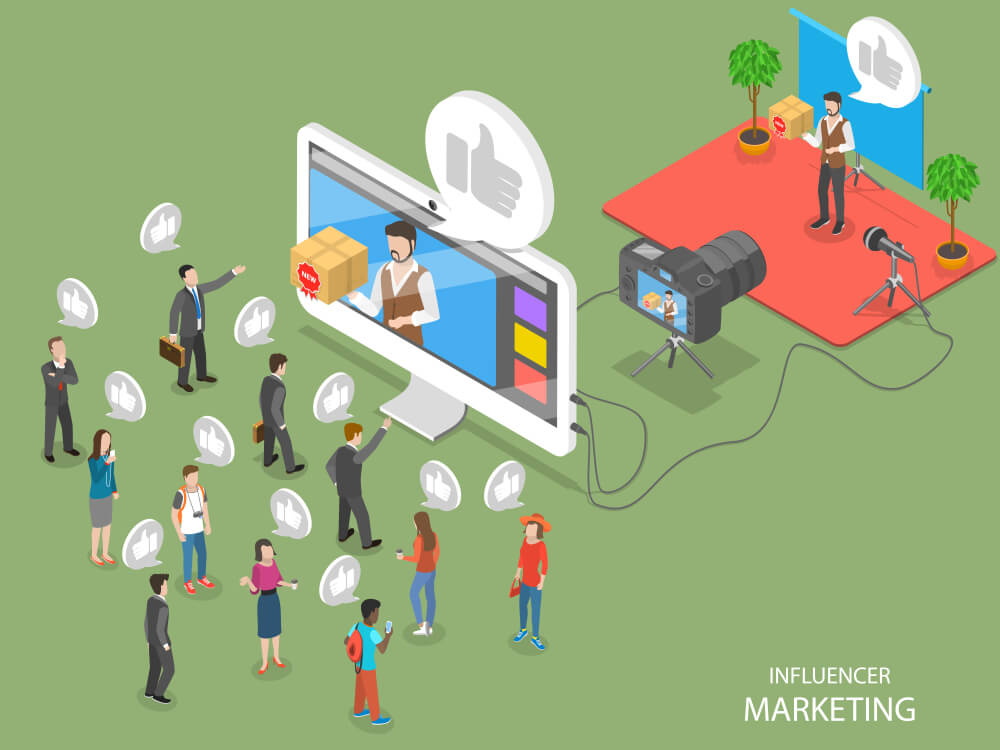Attracting new customers and retaining existing ones is one of the most important aspects of your business. Yet it can also be one of the most challenging, even in a booming economy where consumer confidence is at its highest since the turn of the millennium.
This is precisely why your marketing is so important. When done well, it builds a lifetime bond between you and your customers that encourages them to not only buy your products or services, but also become advocates for them so that other people will purchase them, too. However, the world of marketing is developing at a rapid pace. Technological advancements continuously bring new methods of connecting with your audience and analyzing consumers’ behavior. Social and demographic shifts are driving changes as to what type of information people want, how they want to access this information and how they want to interact with your company. And on top of all of this, the amount of marketing content that people see or hear on a given day is growing exponentially. In fact, according to the American Marketing Association, in 2017, a typical consumer was exposed to as many as 10,000 brand messages each day.
However, the world of marketing is developing at a rapid pace. Technological advancements continuously bring new methods of connecting with your audience and analyzing consumers’ behavior. Social and demographic shifts are driving changes as to what type of information people want, how they want to access this information and how they want to interact with your company. And on top of all of this, the amount of marketing content that people see or hear on a given day is growing exponentially. In fact, according to the American Marketing Association, in 2017, a typical consumer was exposed to as many as 10,000 brand messages each day.
For this reason, it’s critical to be informed of new developments so you can stay ahead of the curve. Check out the following seven marketing trends you need to know about in 2019:
- Content marketing will continue to grow in importance. According to The Drum, between 2016 and 2021, the content marketing industry is projected to grow at a compound annual growth rate (CAGR) of 16 percent to a total of $412.88 billion. And as Forbes points out, one of the reasons that content marketing is so effective is that because it facilitates two-way conversations with customers, it helps you earn trust, boost site traffic, generate high-quality leads and build your brand.

- Video marketing will gain ground. Video is one of the most compelling ways to engage your audience. Hubspot reports that approximately 50 percent of Internet users search for videos pertaining to a service or product before they visit a store. SmallBizTrends states that video drives an almost 160 percent increase in organic search engine traffic; plus, businesses that use video get 41 percent more web traffic from searches than those that don’t. That’s why it’s crucial to put an effort into consistent video marketing. This will allow you to pull back the curtains and ensure full transparency into your company, your team, your products or services, and your customers — in short, everything that makes up your brand story. And as a study by Sprout Social reveals, transparency is essential: 86 percent of consumers are likely to stop doing business with a brand if it’s not sufficiently transparent on social media. On the other hand, 53 percent will consider brands that offer transparency, and almost 90 percent agree that if a business makes a mistake and is transparent about how it will resolve the issue, it can regain their trust.
- There will be a big push into public relations (PR). There’s a lot of noise in the marketing world, which makes it difficult to stand out and get your message heard. By creating a well-thought out PR program that’s integrated with your marketing strategy, you can obtain organic exposure rather than advertised space. This results in a much more authentic way of communicating with your audience, since it’s more trustworthy when another party believes in your brand and your products and wants to share your story. Keep in mind that when it comes to generating good PR, small, local news outlets can be as valuable as larger regional or even national ones. It all depends on where your customers are and how they connect with you to find your products or services.
- Influencer marketing will continue to add value.
 As The Startup Growth advises, a 2015 study by Nielsen showed that the most-trusted sources of advertising include other people, reviews and editorial sites. Because of this, it’s becoming increasingly important to leverage micro influencers — predominantly bloggers, vloggers, reviewers and subject matter experts — who have between 5,000 and 25,000 quality followers on social media. When these people share their experiences with a product, service or brand, they can make a big impact in terms of shaping consumers’ perceptions. For this reason, it’s worth connecting with influencers and asking them to review your products or services.
As The Startup Growth advises, a 2015 study by Nielsen showed that the most-trusted sources of advertising include other people, reviews and editorial sites. Because of this, it’s becoming increasingly important to leverage micro influencers — predominantly bloggers, vloggers, reviewers and subject matter experts — who have between 5,000 and 25,000 quality followers on social media. When these people share their experiences with a product, service or brand, they can make a big impact in terms of shaping consumers’ perceptions. For this reason, it’s worth connecting with influencers and asking them to review your products or services. - Consumers want stories — and they want to be a part of them. Instead of merely reading or viewing marketing content, consumers want to know the story behind the product, story or brand — and they want to participate in it. Marketers can capitalize on this trend by means of immersive storytelling. Advanced technologies such as augmented reality (AR) and virtual reality (VR) — already widely used for video games — can help you provide immersive experiences, for example a VR product tour or a 3D walk-through of your business in which the consumer can actually interact with the product or surroundings.
-
Empathy will take center stage. Forbes states that in this purpose-driven era, business leaders are expected to contribute to the world in a meaningful way. Consumers expect them to not just think about financial gains, but also to help drive positive change. That’s why forward-thinking companies apply their purpose as an aspirational theme that defines their content and enables them to connect with their audience on a much deeper level. One example is jetBlue’s entertaining marketing campaign, which features several short videos that address most people’s pet peeves when traveling — such as fellow travelers who get too comfortable. Similarly, in its “Retail Therapy” campaign, Ikea named its products after common web searches about relationship problems — for example, a stool was renamed “my husband falls asleep on the couch.”
- Artificial intelligence (AI) and machine learning will help deliver an enhanced customer experience (CX). CMO reports that rapid advancements in AI and machine learning will enable better personalization, which in turn delivers an enhanced CX. In addition, these technologies are providing the foundation for extremely effective chatbots that can successfully help customers round the clock. Moreover, they can be applied to create product recommendations once they know what types of products you typically look at and purchase — think, for example, of the recommendations on Amazon.com.https://www.youtube.com/watch?v=9tucY7Jhhs4
With a better understanding of what the upcoming year has in store in terms of marketing trends, you can start taking steps to adjust your marketing strategy accordingly. If you need some additional advice or support, don’t hesitate to contact our team of marketing experts here at Aliste Marketing. We’re here to help you enhance your brand while you focus on building your company!



 As
As 

